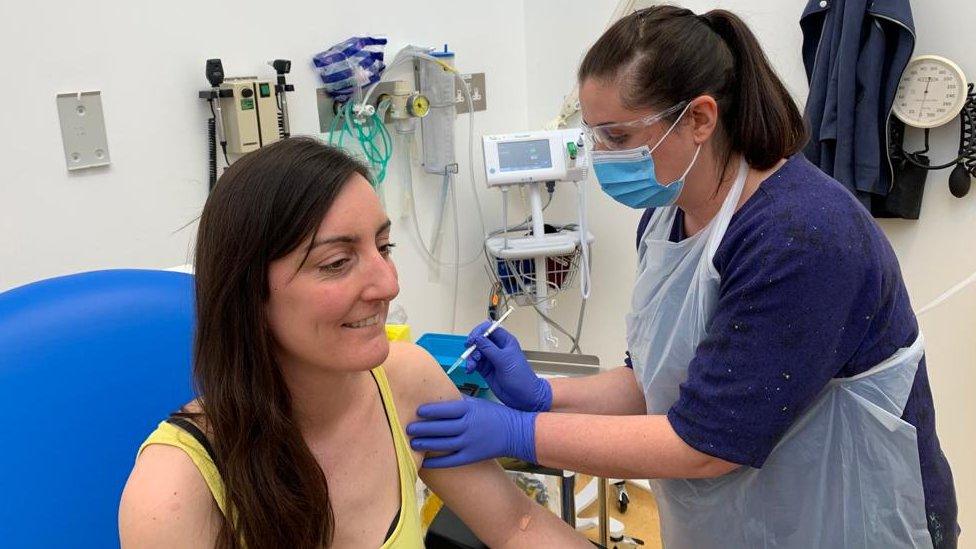Covid: Doctors call for rapid rollout of vaccines
- Published
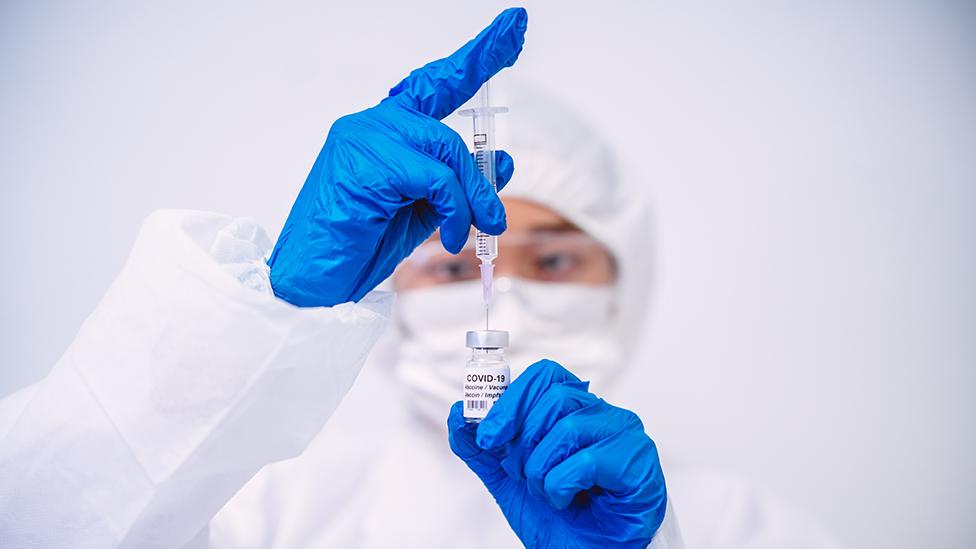
Doctors are calling for a significant ramping up of the vaccination programme following approval of the Oxford-AstraZeneca vaccine.
The first patients are expected to receive the jab - the second approved for use in the UK - on Monday.
But with just over 500,000 doses available to use next week, experts are worried there may be a bottleneck in the system.
There are more than 25m people in the nine priority groups identified so far.
This includes all those over 50 and younger adults with health conditions, as well as frontline health and care staff.
Meanwhile, GPs have questioned the wisdom of cancelling patients already booked in for their second doses of the Pfizer-BioNTech vaccine, the first jab that was approved and has been used since early December.
As well as approving the Oxford vaccine on Wednesday, regulators also said that doctors could wait longer between the two courses needed, to ensure faster rollout of vaccination.
But the British Medical Association's Dr Richard Vautrey said GPs were unhappy they were being asked to cancel appointments that had already been made for second doses. The original advice said they should be given three weeks apart.
He said it was "grossly unfair" and would waste staff time.
'We've been left high-and-dry'
One of those who has been affected is Stella Joseph, who is 82 and has a chronic lung condition.
"The thing I feel most is utterly helpless, that there's nobody to appeal to, that you can't get any assistance with this at all.
"I think it is so hard that those of us who were in this first wave were obviously people who are at high risk and we're the ones who have been left high and dry."
The move has also prompted some debate about how strong the evidence is for delaying the second dose.
Prof Peter Openshaw, of Imperial College London, said there was "pretty convincing" data showing it would enhance the effect of the Oxford-AstraZeneca vaccine.
But he said because the Pfizer-BioNTech vaccine had not been tested in the same way, there was no comparable evidence.
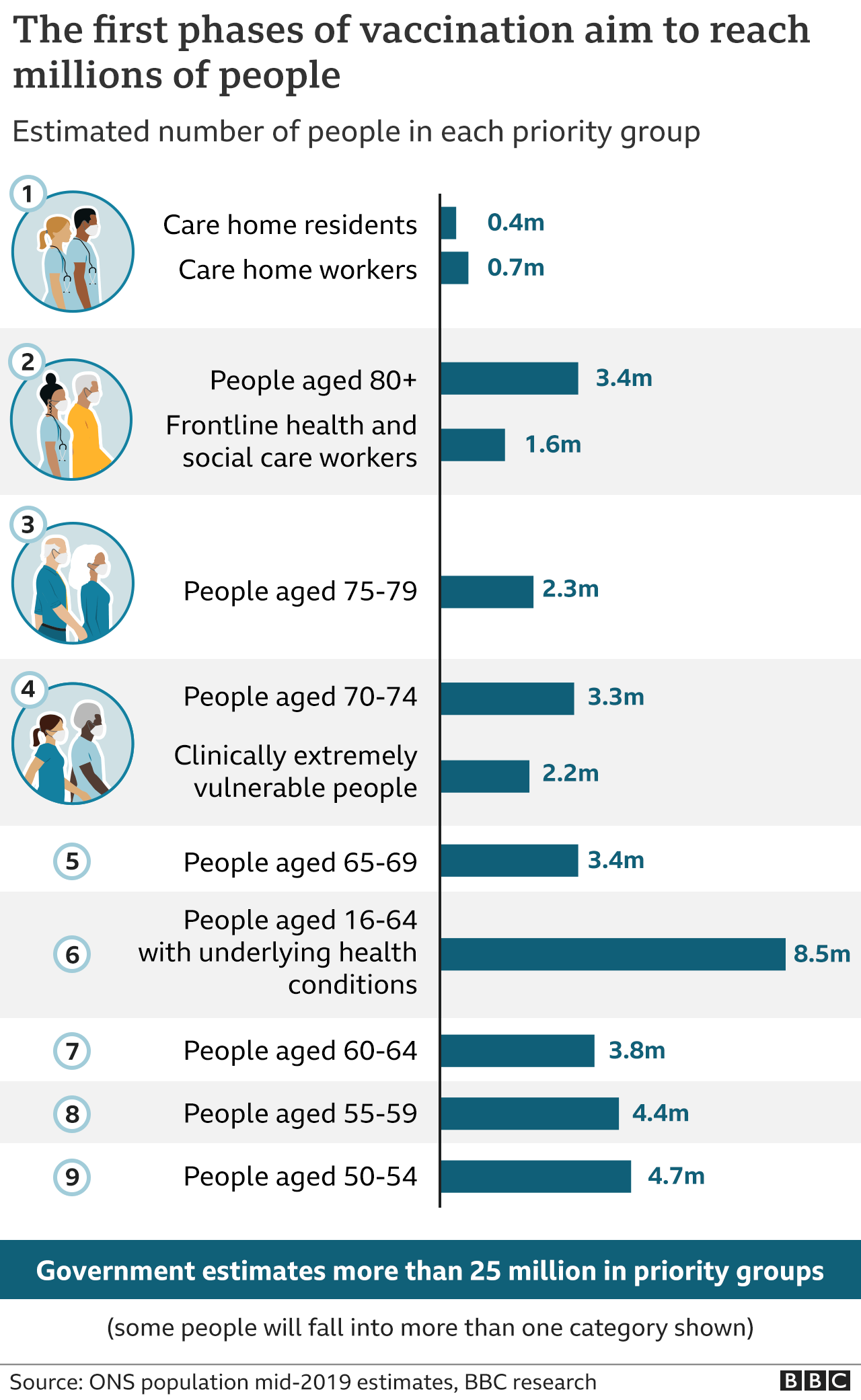

Concerns over pace of rollout
So far nearly 950,000 people have received a first dose of the Pfizer-BioNTech vaccine.
The hope was that when the Oxford-AstraZeneca vaccine was approved, it would lead to a significant increase in the rate of vaccination.
The jab is easier to store and distribute as it can be kept at normal fridge temperature, unlike the Pfizer-BioNTech one that has to be kept in ultra-cold storage.
There are thought to be more than five million doses of the Oxford vaccine in the UK, but only just over 500,000 are ready for use.
That is because vaccines have to be put into vials and batched and certified.
Sources at the NHS expressed frustration at the situation. "The NHS is ready to go, but we can only go as quickly as supply allows," one said.
Queen Mary University epidemiologist Deepti Gurdasani said there appeared to be a "bottleneck", and the government looked like it was still going to be under its target of two million doses a week.
"We really need to speed up rollout," she said.
'Massive system needed'
There are currently more than 700 vaccination sites up and running, with several hundred more thought to be ready to go once vaccines are available.
But the limited supply of the Pfizer vaccine, which has to be shipped in from Belgium, has meant some centres have not been able to vaccinate people every week.
Dame Clare Gerada, a former chair of the Royal College of GPs, said: "We really now need a massive operational system. We need a 24/7 system with GPs, mass vaccination centres and hospitals - this needs to be scaled up.
"It's got to be football stadia, all these large venues that we've got currently lying dormant.
"If we can really get a mass operational system up and running, then I can't see why we can't be getting the whole population immunised by the spring."
NHS England's medical director for primary care, Dr Nikki Kanani, promised there would be a significant expansion of the vaccination programme in the coming weeks.
She predicted the majority of care home residents would be protected by the end of January, and frontline staff would start to get a vaccination in large numbers.
She also praised the progress made so far, thanking the "tireless efforts of staff".
England Health Secretary Matt Hancock also praised staff, adding the numbers being vaccinated would "rapidly increase in the months ahead".
Related topics
- Published23 November 2020
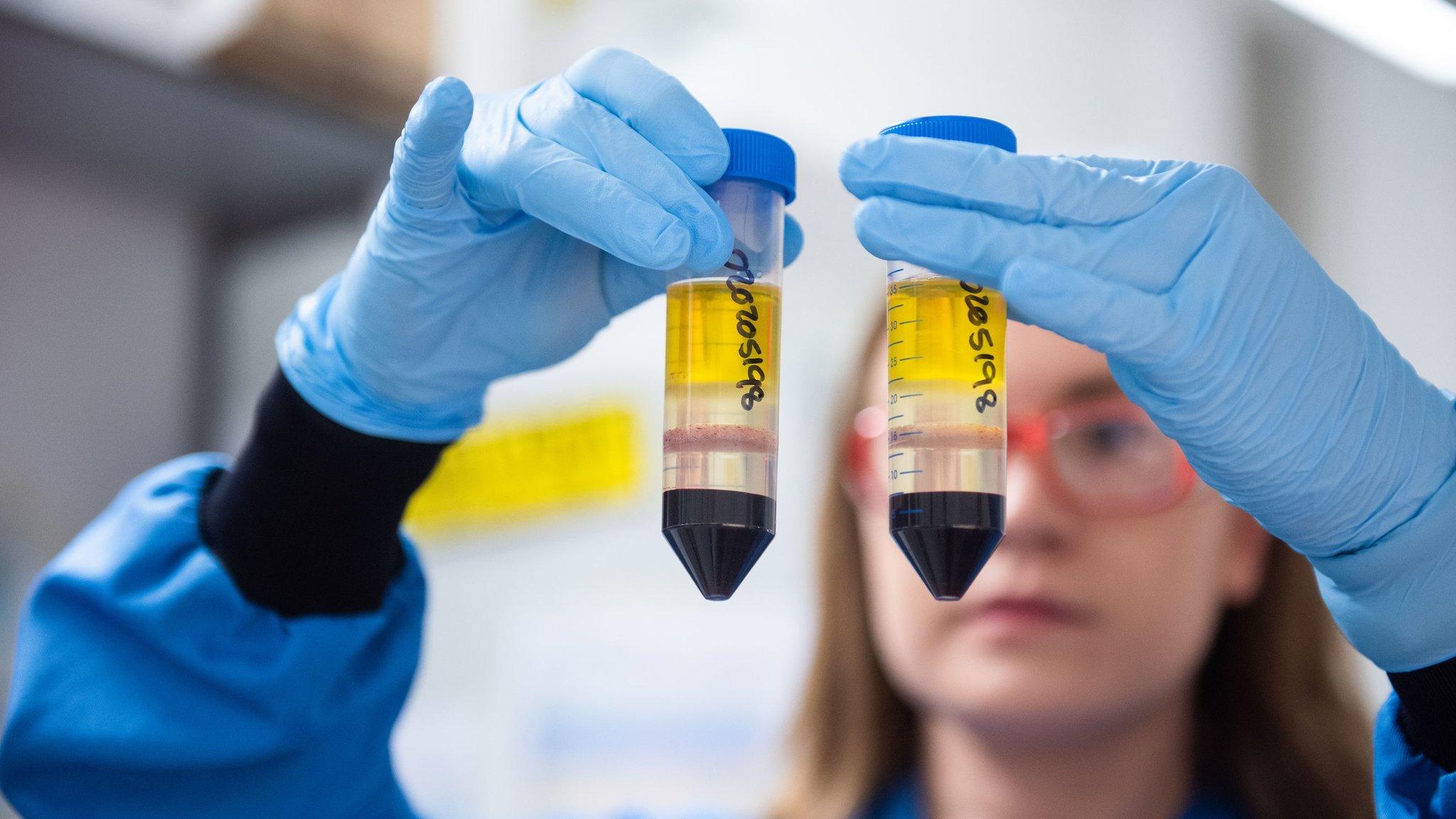
- Published9 December 2020
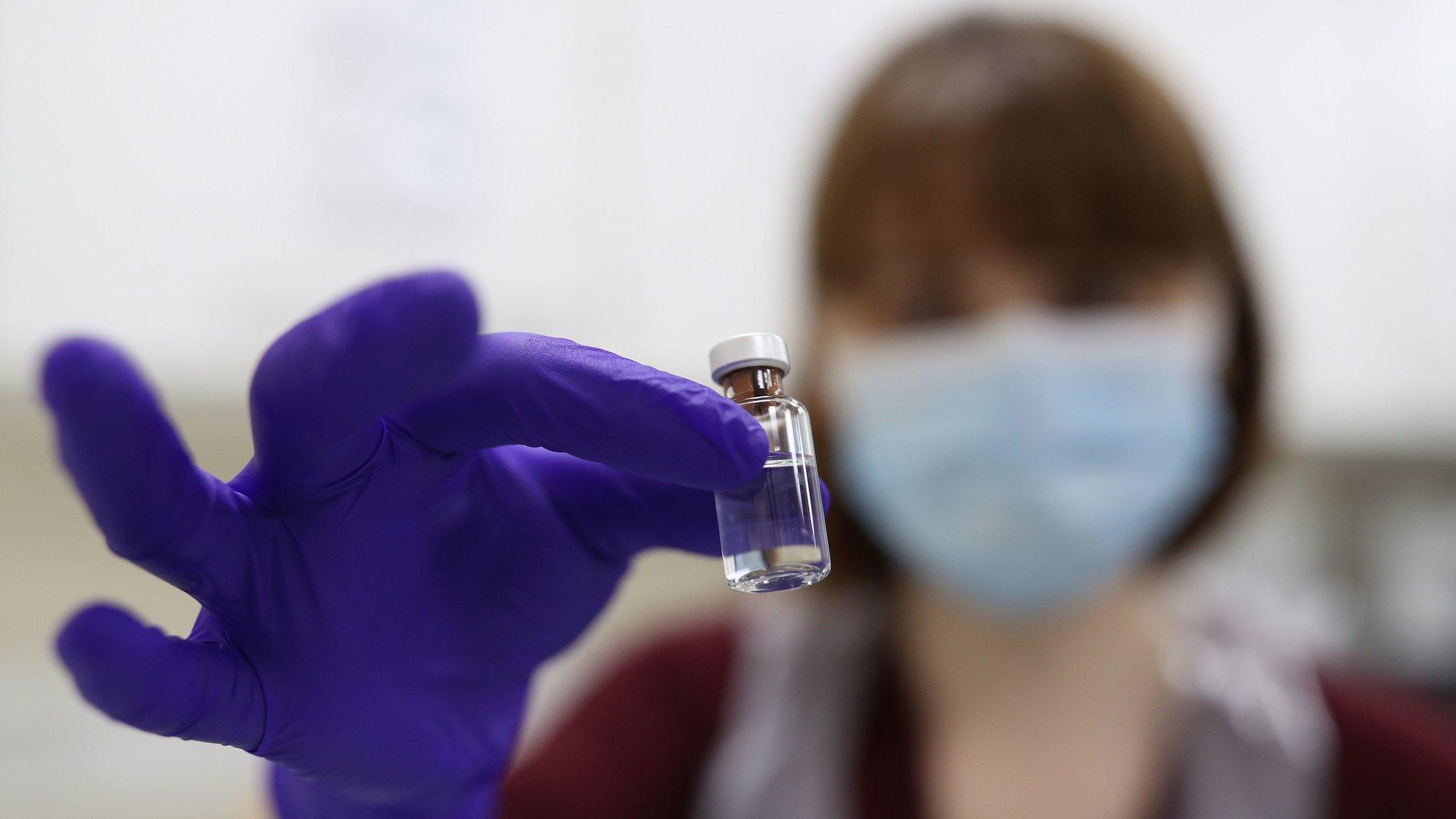
- Published23 November 2020
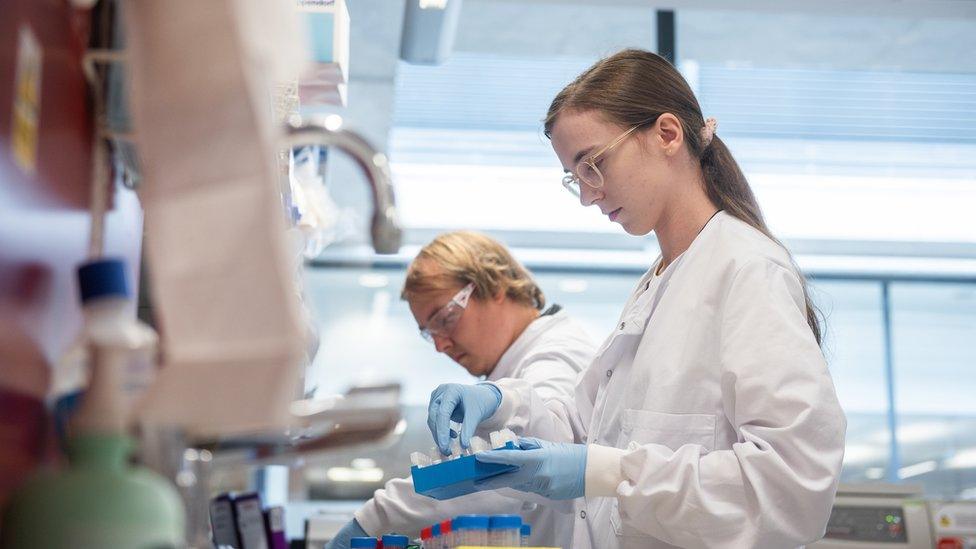
- Published8 December 2020
